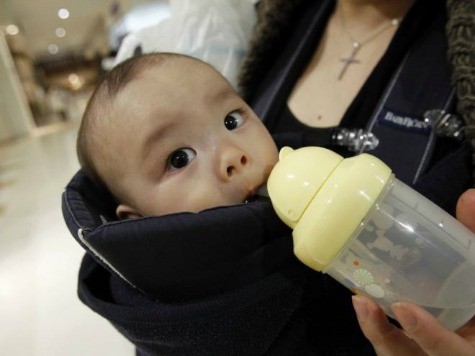
An Environmental Protection Agency-supported study reveals last summer’s Food and Drug Administration ban on sippy cups, baby bottles, and canned foods infused with the chemical bisphenol A (BPA) appears to have been an overreaction.
According to the study, conducted by Doctor Justin Teeguarden, a senior scientist in the Systems Toxicology and Exposure Science group at the Pacific Northwest National Laboratory, BPA does not affect humans as profoundly as alarmists warn:
[BPA] has the potential to mimic the sex hormone estrogen if blood and tissue levels are high enough. Now, an analysis of almost 150 BPA exposure studies shows that in the general population, people’s exposure may be many times too low for BPA to effectively mimic estrogen in the human body.
The analysis, presented at the American Association for the Advancement of Science’s annual meeting by toxicologist Justin Teeguarden of the Department of Energy’s Pacific Northwest National Laboratory, Richland, Wash., shows that BPA in the blood of the general population is many times lower than blood levels that consistently cause toxicity in animals. The result suggests that animal studies might not reflect the human BPA experience appropriately.
“Looking at all the studies together reveals a remarkably consistent picture of human exposure to BPA with implications for how the risk of human exposure is interpreted,” said Teeguarden. “At these exposure levels, exposure to BPA can’t be compared to giving a baby the massive dose of estrogens found in a birth control pill, a comparison made by others.”
Last July media outlets attempted to scare the public over the dangers to humans that BPA posed:
The chemical can leach into food, and a study of over 2,000 people found that more than 90 percent of them had BPA in their urine. Traces have also been found in breast milk, the blood of pregnant women and umbilical cord blood.
Reports of potentially negative health effects have made BPA notorious, especially among parents, and led to widespread shunning of products thought to contain the chemical. Canada, Chicago and Suffolk County, N.Y., have banned BPA from children’s products. In 2010, the F.D.A. said that it had “some concern about the potential effects of BPA on the brain, behavior and prostate gland of fetuses, infants and children.”
However, Teeguarden’s research showed the strong possibility that past BPA studies that led to its eventual ban were flawed:
Teeguarden’s analysis also confirmed the findings of many academic and government scientists that biologically active BPA is at such low concentrations in the blood that it is beneath toxicologists’ current ability to detect it, raising questions about the role of sample contamination in studies reporting high levels of BPA.
As a result of the ban on BPA, companies who had adapted to the new policy saw their costs increase. More recently, a French BPA ban, according to a U.S. Department of Agriculture report, would “jeopardize” U.S. food exports to France.

COMMENTS
Please let us know if you're having issues with commenting.